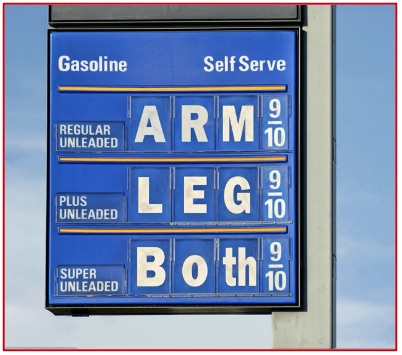
Small businesses have struggled over the past two years of the pandemic, facing shutdowns and closures, dealing with supply chain issues and a shortage in labor. Many business owners were hopeful that as time went on and COVID-19 cases decreased, they’d be able to get back to their normal operations.
However, the higher prices at the pump have not only affected the overall economy, but specifically thousands of small businesses are back on the brink of bankruptcy. When a larger portion of income is spent filling the tank, people are forced to reduce their spending in other areas. In other words, consumers find they have less expendable income for some of the goods and services they would normally purchase.
For small business owners, it can be difficult to continue operating as “business as usual” during this period of rising gas prices. Fuel prices affect small businesses in several ways, from their overhead expenses and available service areas to the pricing of their products. If fuel costs continue to increase, some companies will find they have no choice but to raise their prices and pass along some of the costs to their customers.
Small businesses that use vehicles as part of their daily operations, such as construction, transportation, maintenance and deliveries, will be obviously hit the hardest. These industries may be the first to pass along the extra charges to offset rising gas prices and help maintain their profit levels. Additionally, some businesses may begin to limit their service and delivery areas, targeting smaller regions to help reduce their fuel costs.
Even nonprofit organizations could feel the impact of both rising gas prices and inflation, with higher demand for products at food banks or services like Meals on Wheels, as an increasing number of the population could require additional humanitarian services.
Your thoughts are most welcome.
Nancy Seiverd, President, CMI Credit Mediators, Inc. (nseiverd@cmiweb.com)

